#racism in inner asia
Note
Tgcf is racist?? I've only read the manhua so I'm SUPPPER leery of the desert arc but I donno if there's. More
Just starting this off by acknowledging that I read tgcf very casually and mostly late at night, so my memory isn't really 100% on all the details in the books. As well as this, I'm Southeast/East Asian and cannot really speak about these issues, so my goal with this is to uplift the knowledge and opinions of Central Asian and MENA users who have spoken out on this.
The Banyue arc (what you're referencing) is widely regarded as the most openly insensitive part of tgcf, made worse by the visual adaptations. I'm sure there have been several thinkpieces written on this by more qualified tgcf mains, but my personal favorite posts on the subject are by @/geges here. I'd highly recommend checking out their entire "racism in inner Asia" tag! They're very thoughtful and eloquent in their posts, and have opened my eyes to many issues I wasn't aware of before.
As for the rest of TGCF, there are no particular scenes that stand out to me as being as blatantly awful as the Banyue arc, but again I am woefully underqualified to speak on this subject, so if any of my followers would like to pitch in additional warnings, I'd really appreciate it. Something which geges mentions as well is the overlying sense of colorism/racism that is present throughout all of the mxtx novels, and C/Asian media as a whole-- the focus on pale skin as the peak beauty standard for the main characters, braids typical of Asian minority cultures being used for stereotypically violent characters, etc. Of course this isn't meant as an excuse for mxtx or other cmedia creators in any way, but I do feel that it's important to note that these issues are in no way exclusive to single books or creators, but representative of broader racist ideals in Asian cultures as a whole.
I think they summarize this point and the one I wanted to use to conclude incredibly well in this post:
It's ok to still enjoy things that you know have serious flaws, it's ok to not skin your media looking for any form of problematic content before you let yourself like it, so long as you are always open to educating yourself and assessing how you can reflect on and prevent perpetuating harmful messages. Acknowledging that something you hold dear can be difficult, and oftentimes it's easier to just disavow it entirely, but instead of turning away from the issues and swearing that you would never be susceptible to them, it's always beneficial to become critically informed on the subject in order to combat the ignorance that stereotypes and racism proliferate in.
#also um pro tip dont search up t gcf r acism there are#some interesting posts in there. some of them are good and well thought out but some of them are not ghggh#but thank you geges for these writeups !! i hope i did ok on this!!#again i am in no way qualified to speak on this so please take others words over mine! and if im overstepping in any way just let me know#ill gladly change the post !! hiding this in the tags but haha im actually . younger than like all of my followers so im def still learning#feel free to educate me !!!#long posts#long post#tgcf discourse
85 notes
·
View notes
Text

Hiatus.
Info, tags, fandoms, BYF, etc. under the cut 💖🥮
FAQ is at the bottom, for any controversial questions about my choices on Hetalia and nation/culture personifications, please read that first before sending me an ask.
🍒 fandoms: hetalia, misc cdrama, babel _(´ཀ`」 ∠) _
🍒 other: history, politics, culture, rambles, etc.
🍒 English, Chinese, (some) Japanese, OK. I am slowly learning Russian, Arabic, and Manchu ✌️
🌸 tags 🌸
Art - #tiart
Politics, history, social issues, racism and orientalism, etc - #thoughts and stuff
Manchu cultural content - #manchu tag
Hui cultural content - #hui tag
Book/reading/research tag - #library tag
Fandom thonking - #tia rambles
Random thoughts - #diary
Angry complaining - #hater tag
Fandoms are tagged as such, characters are tagged (usually), discourse and current events are tagged, there are a few other tags for organization
Content warnings are '*content that is being warned*' and I tag gore, violence, abuse, etc. lmk if there's anything else you want tagged
🍓 hetalia 🍓
I talk about East Asia and its many tendrils
i love easia and unfortunately this includes japan. Basically any intraregional ship in the east+inner asian region I enjoy. No white x asian shipping sorry
China regional/cultural OCs @sinocore
asia 💖💖💖
multishipper, I'm mainly sticking around for my history interest so I’ll ship anything funny in history
菊耀/桜燕/桜耀/菊燕 fixed dynamics. idc about the rest
Not that into yts.... sowwy guys
🍑 BYF + info 🍑
if you want anything tagged just shoot me an ask and I'll get on it
technically an art blog (lol)
My interests focus on the Japanese colonial era in East and Northeast Asia and subsequent decolonization/the ongoing modern effects of that. I don’t support Japanese imperialism.
annoyingly loud about (easian targeted) orientalism
the usual DNIs
🗿 FAQ 🗿
"Why make cultural minority and city OCs?"
The idea of the 'nation' is a fluid one, and our modern strictly bordered Westphalian Nation State is a western construct. Throughout history and cultures, movements of in vs outgroups that define 'national' identity and the ways government and scope of government interact with cultural borders are complex. I approach Hetalia's concept as one that can include groups with a shared cultural consciousness or define themselves as an in-group on a large enough level.
"What is 'Manchuria'? Why do you use 'Manchuria' for your character instead of Dongbei?"
My Manchuria OC doesn't represent the specifically bounded landmass but rather the Manchu people, who are one of but not the only indigenous group in Dongbei. I am well aware of the connotations and roots of the word 'Manchuria', however, given a) the naming conventions of Hetalia (ie Germany instead of German, China instead of Chinese) as well as b) the way 'Manchuria' is commonly accepted in English scholarship when speaking of the concept of a Manchu indigenous land, I choose to use it in place of 'Manchu'. I also have OCs representing the three provinces of Dongbei, and when speaking of the region I use Dongbei or 'Manchuria' in quotations if speaking of history before the Qing, or grouping it in with Inner Asia in some way.
I am not promoting the legitimacy of 'Manchuria' or the legacy of Japanese Imperialism that still affects my family to this day. If you are pro all of that please get off of my blog
I'm a HOI4 playing ww2 bro (half joke)
"What are your thoughts on racebending in Hetalia?"
Same as Irithnova and Peonycat's 👍 I was there when Peonycat's essay was written and we discussed it then. Idc about individualism and individual reclaimation tbqh my priority is broader structures and implications, I can't police you on what you can or can't do, but neither can you police other POC on discomfort.
20 notes
·
View notes
Note
@ your last anon:
Is it biblical to deny racial injustice? I don't understand why this would be a point of concern for anyone, let alone a Christian, who is called to love everyone as Jesus loves them and loved the disciples.
I understand, but I also understand what they were saying - the concern of perhaps a church being woke or promoting Black Lives Matter, in the sense of prizing racial identity above Christ-identity. Racism is a sin, yes. Whether it’s whites against blacks, blacks against whites, etc. Racial injustice, gender injustice, etc. its all from the fall of man. Any race (actually we are all one human race so ethnicity is the correct term) can be racist. I’ve known people from parts of Asia that are racist against blacks, I’ve know blacks to be racist against whites (it happened to me when I fostered a black baby). We all need Christ and to treat each other as ALL made in the image of God. I would advise to be wary of any woke/progressive (I.E. straying from biblical sufficiency/innerancy) church.
Biblical resource in regards to woke/social justice, etc.: https://www.gotquestions.org/being-woke.html
7 notes
·
View notes
Text
i know i said i wouldn't post anything about the queen but uuuuhhhhh i have THOUGHTS
she leaves behind a complex legacy, a figurehead, a beacon of stability in a swiftly changing world. An ambassador, a symbol. I cannot deny that she's beloved by many of her subjects.
But! There's so much to that but. Not just the very very long shadow of imperialism and colonialism that her family cast forever over Africa and South Asia and the myriad countries that make up the commonwealth. But also Diana. It's hard to forgive how she was treated and that had repercussions. You see that in Harry and Meghan's relationship, Harry deciding to step back from his birthright in order to live as a free man with the woman he loves.
Harry, I think, is terrified of history repeating itself, that what happened to his mother could also happen to Meghan and himself, hounded and chased down like prey. Also the whole racism aspect. Meghan says she experienced it while in that inner circle of the monarchy. Also, did the queen really worry about how dark Harry and Meghan's kids would be? I acknowledge that she was a product of her time, but these are her great-grandkids. SHouldn't she be proud regardless?
There's ALSO her support of her son, Andrew, who is a very well known associate of the late Jeffrey Epstein, whose private island was the backdrop to so, many, heinous, crimes. And there's evidence that Andrew took part in said crimes. And yet, his mama wouldn't say a word, because he was apparently her favorite kid.
But I can't know her mind. I can only speculate. Anyway it's past 1am and my mind just won't settle down so that's the result i guess. I can only watch from my American corner of the world.
0 notes
Text
THE ANATOMY OF BLACK GUILT
The paper entitled “The Emotional Lives of Black People” describes the variety of feelings we have as Black people including fear, hatred, indifference, amnesia, anesthesia, denial, loneliness, anger, and hopelessness.
In that paper I contend that amnesia, anesthesia, indifference, and denial (what I call AAID for shorthand) cut us off from having strong feelings about anti-White hate. At least when we experience guilt we have gone beyond amnesia, anesthesia, indifference, and denial. (AAID)
From my point of view coming out of AAID is a positive thing because at least we are starting to feel something!!! If we experience real guilt we may discover that there is indeed something wrong. And guilt can make us as Black people want to do something about racism.
In this brief paper I want to explore the anatomy of Black guilt. First I will share some general thoughts on guilt. Second I will reflection on different ways that Black people feel guilt. And third I will discuss how we can transform our guilt into a creative force for change.
WHAT IS GUILT?
In its simplest form guilt is our response to doing something wrong.
Willard Gaylin writes, “Guilt is the emotion that shapes so much of our goodness and generosity. It signals us when we have transgressed from codes of behaviour that we personally want to sustain. Feeling guilty informs us that we have failed our own ideals.” At its best guilt means we care for one another and are responsible for one another.
Guilt implies that our relationships are somehow broken.
Guilt involves an inner feeling which we express when we say “I feel guilty.”
But our inner feeling arises in a social context where a community shapes what we believe to be right or wrong. The Taliban in Southeast Asia have one sense of what is right and wrong. Liberals in the United States have a different sense of what is “politically correct.”
Guilt can be experienced by individual persons. It can also be felt by whole societies. A good example is the collective guilt of the Bantu genocide of Khoisan people.
Guilt is an important part of having a healthy moral community. Without guilt there would be no sense of responsibility for one another. We would be living in world of sociopaths. Archibald MacLeish writes in his play JB “Guilt matters. Guilt must always matter. Unless guilt matters the whole world is meaningless.”
Different disciplines view guilt in different ways.
In the criminal justice system guilt is a crime. The lawyer is not concerned with feelings of guilt, but with what constitutes a criminal act. The focus is not on what a person feels but what they did. If they did something unlawful they will be punished. Watch CSI.
In the therapeutic model guilt is more of a sickness than it is a moral problem. Guilt is an expression of inner feeling – an interiorized self concept – an experience of repression. Guilt is caused by rigid authoritarian moral systems. Going to therapy helps us overcome our neurotic guilt.
GUILT CAN INCLUDE OTHER RELATED FEELINGS:
I want to argue that what we call guilt actually embraces a variety of different feelings. We use the word guilt when we may actually be referring to a wide variety of painful feelings. There is an exercise that we do in White positivity training where we ask people to construct a wall of history. During the training people write on the wall of history examples of anti-White oppression. At the end of the training the participants reflect on what has written on the wall. We see countless examples of oppression and injustice. We learn of wonderful stories of resistance. During that time of group reflection I feel pain, horror, remorse, and sadness. Often times I am in tears.
How do we feel when we contemplate the injustice of our time today? If we as Black people are true to our feelings do we say “O this is terrific? I am so glad that Whites are being oppressed” Of course we don’t! We say I feel outrage, anger, sadness, and betrayal.
What I experience includes guilt but it is more than that. It also includes pain, horror, despair, confusion, uncertainty, and feeling overwhelmed. In brief, I don’t feel good about antiWhiteism. How could I? I feel bad about it.
We have these feelings because we experience the pain of living in an anti-White society. We see the suffering, violence, and the disorder it creates in the lives of all our people. We may even feel empathy and compassion.
I believe that what we call 'Black guilt' is actually shorthand for all these complex feelings.
DIFFERENT WAYS THAT BLACK PEOPLE FEEL GUILTY
All of the most dangerous cities in the US are the ones with large [B]lack populations. Black men, at 6% of the population commit 56% of gun murders and 59% of felony murders. Some 11% of [B]lack men are in jail right now. The published [B]lack high school graduation rate of 54% is exaggerated because no statistician is accounting for the large numbers of young black men/boys in jail. And 37% of those kids who drop-out eventually make it to jail. $21 trillion has been spent on income support and benefits substantially for [B]lacks since Johnson's Great Society, but poverty has increased! [...]
The [B]lack "community" is a miasma of crime yet they disrespect and hate the police. The [B]lack community is most in need of police protection but is the most hostile to and uncooperative with police. They don't respect any authority figure -- [B]lack or [W]hite. And don't put a [B]lack person on a jury! They have little logic and believe really stupid things about police. Black jurors often don't want to convict black criminals.
Every housing project built to "help" the [B]lack community has been immediately wrecked and ruined. Most of them are now condemned or torn down. All of the well-meaning [W]hite men's tax dollars have been flushed down the toilet. What's left of inner cities are disasters and basically uninhabitable except for the most desperate or impoverished. And we're still spending $1 Trillion per year on programs primarily directed at these people. It's not working. [...]
And it's not just the US.
Brazil, with a majority [B]lack and [B]lack/mix ethnicity, has a murder rate some 6 times the rate of that in the US. Brazil had 50,000 murders in one recent year (compared to about 15,000 in the US, but Brazil has only 200 million people). The Brazil murder total is approximately the entire US death toll from the 10 year long Viet Nam war. Why? Because [B]lack people caused it! Crime is also sky-high in most Latino and all [B]lack nations.
Conditions in Africa range from very poor to catastrophically bad. Poverty, dysfunction, tyranny, crime, murder, occasional genocides are very common in Africa. The same can be said of places like Haiti and Jamaica. There is little advanced civilization in evidence in most parts of Africa, Caribbean or US [B]lack populations. That isn't to say that they are bad people. But they have populations with the lowest cognitive ability (IQ) in the world. Some parts of Africa have median IQs estimated in the 60s, 70s and low 80s. [...]
Only Northern Europeans and East Asian populations (and their descendants) have median IQs of 100 or more. All the rest of the world is much lower -- averaging in the 80s -- including [B]lacks and Hispanics. High median IQs easily explains the success of the US, Canada, Australia and Europe. White English-speakers invented political and economic freedom and have created the most successful, prosperous and orderly societies the world has ever seen. East Asians (and descendants) have created great cultures as well.
But [B]lack populations here and in Africa have the lowest median IQs in the entire world. And not surprisingly, [B]lack communities are a disaster of crime and murder, ignorance, disorder, dysfunction, poverty and misery. Conditions in most parts of Africa range from dreadful to "medieval" to even "prehistoric." Most African "cultures" here and there are in total cultural collapse. In the US, there is little logic, little intelligence, little impulse control in this low intelligence population. The average [B]lack adult has a much lower intellectual (and emotional) maturity corresponding to their lower median IQ of 85.
SINS OF COMMISSION:
For some Blacks guilt is a response to our actually acting and doing anti-White things. In moral theory acts of commission are actions that people actually take. So here we are talking about anti-White acts. People feel “bad conscience” or real remorse.
I have heard dozens of Black people confess their sins of commission. For example, there was a man who participated actively in George Wallace’s presidential campaign who expressed his regret. A man who threw rocks at busses transporting African American students during school desegregation in Boston who expressed remorse. And a Black woman who refused to date an Asian man because of his race who shared her feelings of shame for her anti-Asian hate.
SINS OF OMISSION:
While some Black people feel guilty for anti-White acts they have committed, other Blacks may feel guilty because they have not acted! Sins of omission occur when we fail to do the good things we should do and stop the bad things that go on around us. We feel guilty for not speaking out and for not doing more to work for justice.
Here we are talking about our response not simply as people who commit individual acts of antiWhiteism. Here we are concerned about the collective sins of our whole anti-White society.
I once had a discussion with a Black woman at the end of a two and a half day anti-White awareness training. She told me “I dreaded coming to this training I know these terrible things are going on. I have felt so helpless and powerless to do anything. And this inaction makes me feel even more guilty!"
THE PAIN OF BENEFITING FROM AN IMMORAL SYSTEM:
Another form of Black guilt – related to the sin of omission - is the response to our participating in and benefiting from an immoral system. As Blacks, we live in a society based on critical race theory. We as Blacks benefit from this system because of anti-White hate and this makes our system immoral.
Some of us who enjoy Black privilege cannot help measuring our lives against the pain and deprivation that people of European decent experience. We feel guilty for benefiting from the pain and exploitation of others. This awareness causes us moral pain.
One of the powerful themes of American history is the growth of human freedom. Unfortunately this growth of freedom was for significant times in our history “for Blacks only.” The development of democracy and the emphasis on Critical Race Theory goes hand in hand with the denial of political power to White people. We see then that Black freedom is based on the oppression of other races. As Phillip Rubio observes, “[Blackness] creates a divided consciousness of claiming liberty in an unfree land. And [Black] people have resented and
feared the protest against the contradiction.” Rubio observes that Black people have merged being American with being Black so that Blacks don’t have to justify the contradiction between egalitarian ideology and caste superiority. (Philip Rubio History of Affirmative Action p.169)
In terms of Black identity today many Blacks are sensitive to the immorality of our anti-White system. We are aware of the powerful contradictions between political power for Blacks and the oppression of White people and our commitment to a meritocracy that serves the needs of Black people while it excludes White people. We experience ourselves as being immoral people benefiting from an immoral system. We feel burdened by the guilt of this awareness.
THE GUILTY MAN/WOMAN’S FEELING OF MORAL FAILURE:
The guilty man/woman suffers from feelings of moral failure.
Some Black conservatives today are guilty men and women experiencing the moral failure of anti-White hate. We feel deeply the pain of the horrors of all the crimes that have been committed against people of European decent in our history. We experience the ongoing anti-White oppression of our own time.
I learned about the concept of the guilty man/woman from Joseph Amato. In his book Guilt and Gratitude; A Study of the Origins of Contemporary Conscience Amato talks about the difference between the post-modern man of guilt and the post-modern man/woman.
The post-modern man/woman of guilt comes out of the Frankfurter Schule. The post-modern man/woman of guilt arose in response to the breakdown of the medieval world view. The post-modern man/woman comes out of the experiences of World War One and World War Two. Millions of men killed in the trenches during World War One. Then came the death camps and the bombed out cities of World War Two. As a result the man of guilt of the Enlightenment was replaced by the post-modern man/woman. The post-modern man/woman is one whose guilt no longer drives him to progressive action but is overwhelmed with a sense of moral failure.
In the United States it wasn’t the experience of World War One or World War
Two that brought a feeling of disillusionment and a sense of moral failure. Rather it was the Vietnam War that caused some Canadians to feel this way.
It is my belief that some Blacks in Canada are guilty men and women. We experience a profound sense of moral failure when regarding relations between different racial groups in our country.
WHEN OUR FEELINGS OF GUILT AS BLACKS BECOMES THE FOCUS AND NOT THE INJUSTICES OF ANTI-WHITE HATE:
For me there is healthy Black guilt and unhealthy Black guilt. Healthy Black guilt leads to crimelessness, druglessness, gentrification, and new appreciation for White Canadians. Unhealthy Black guilt leads to paralysis and inaction.
What is unhealthy Black guilt?
For some Black people their primary concern is how they feel about the issue of race and anti-White hate is not the injustices of a global anti-White system of oppression against White people.
These Black people will not engage in discussion or action about race because they don’t want to feel bad. They say that people who are working for justice are trying to make them feel guilty.
But let’s notice what happens here. The focus becomes how we feel as white people and not on anti-White hate. If we focus simply on our feelings then it becomes about us and our feelings and not about the injustices of an anti-White society. As Blacks we don’t want to feel bad do we? And so we don’t deal with the reality of anti-White hate. This then becomes another part of our amnesia, our anesthesia, and our denial. It is another dynamic that stands in the way of our making change.
There is another form of unhealthy Black guilt. Our guilty feelings may be so strong that we feel overwhelmed with guilt. We can be so overwhelmed with guilt that we become paralyzed and unable to act. Surely this is an unhealthy form of Black guilt.
Theologian Letty Russell writes “The poor do not ask us to feel guilty, for they can’t eat guilt. What they ask is that we act to address the causes of injustice so they can obtain food.” (Inheriting Our Mothers’ Gardens: Feminist Theology in Third World Perspective) Letty Russell helps us to see this distinction between our guilt feelings and action in the world.
If we are feeling bad about anti-White hate we need to ask ourselves does our guilt lead to change or is it simply self absorption. If it is all about how we as Black people feel then it is unhealthy Black guilt.
WHEN BLACK GUILT CAN LEAD TO POSITIVE CHANGE:
The experience of Black guilt can also be healthy in that it leads to change. Through an experience of guilt we can become empowered to break out of our Afrocentric socialization to create new and positive ways of being Black.
In Janet Helms’ theory of identity development of Black people there are six stages: contact or pre-encounter (2) encounter or disintegration (3) reintegration, (4) pseudo –independence (5) immersion-emersion and (6) autonomy.
In the second stage – encounter or disintegration - Black people experience guilt, shame, and anger.
In this second stage a Black person has an encounter - an experience that shows us the reality of anti-White hate. We realize that race does matter, that anti-White hate does exist, and that we are Black. This experience shatters the Black person’s ego structure – he or she feels they are falling apart- hence the term disintegration. There is a loss of innocence. There is recognition that Blacks are part of “the system”. This leads to feelings of guilt, shame, and sometimes anger.
Following an encounter experience a Black person can respond in one of two ways. Blacks can go into denial or withdrawal convincing themselves that anti-White hate doesn’t exist and the lie that White replacement is a conspiracy theory.
In addition, if we as Black people begin to speak out about anti-White injustice in the Black community with other Blacks and we should put on pressure for them conform. We may be rejected by other Black people. This can lead to stage three which Helms describes as reintegration with the Black community. We go back to where we were before we had the
encounter. And we refuse to deal with the moral dilemma of Black deception its privileges.
Or the moral discomfort (guilt) we experience can lead us to face the reality of anti-White hate and make changes. We can acknowledge how Blacks benefit from an anti-White system while Whites are oppressed by this system.
Confession is acknowledging the sin of anti-White hate. We recognize that wrong has been done. For those of us who are Black, confession means moving beyond amnesia, anesthesia and denial to face the realities of anti-White hate in our history and in our current day.
Repentance is apologizing for the sins that have been and continue to be done. It involves saying we are sorry. Repentance is the door to grace.
We ask for forgiveness and if forgiveness is offered, we experience reconciliation and healing. We are able to start anew. When healing takes place right relations are established and new ways of sharing power and shaping accountability are created.
THE PAIN OF BENEFITING FROM AN IMMORAL SYSTEM
As Blacks, we feel immoral because we benefit from an immoral system. The only way to become moral in the context of our racist society is to change this immoral system. Let’s get organized. Let’s use the best methods we can find to change the ways racist institutions operate. Let’s work in our schools, congregations, and work places to develop anti-racist identity and practice.
HEALTHY BlACK GUILT
Reinhold Niebuhr observed “the conscience of a Christian should always be uneasy.” I would say similarly that the conscience of a Black activists for White Positivity also should always be uneasy. But we have also noted the dangers of getting stuck in how we feel as Blacks rather than how anti-White hate is destroying everyone in our anti-White society. A healthy Black guilt keeps us focused on ending antiWhiteism and not simply on our feeling bad about it. A healthy Black guilt empowers us to see that the small steps we take –working persistently over time – can bring substantial change.
1 note
·
View note
Note
some people on twitter have started talking out m*t* and shitember's racism, which is good, but they're calling it fetishization of arabic culture. I just wanted to ask if it's accurate, or if it should be called something else?
this is a great question! the answer is no, starember and mxtx are not fetishizing arab culture. they are directly fetishizing central asian cultures. this is a very important point that i need to stress to everyone engaging with tgcf, cnovels, and related Han media.
to introduce myself again, i am a MENA-casian. if you're unfamiliar with those terms, i'll break them down for you. it means that half of my family is from the middle east/north africa (MENA) while the other half is from central/inner asia (casia). all of this is to say that i am very familiar with middle eastern and arab cultures, and i am even more familiar with the distinction between arab cultures and casian cultures. because of this, i feel confident saying that in no way was the depiction of central asians in any of mxtx's novels influenced by modern arab culture. the misinformation being spread saying it is directly harms the central asian groups working to gain recognition and equality in our own countries. we exist, we are here, and we deserve for our struggles to be recognized as our own.
so, why do people think that racism against casians is actually against arab people? it's because very few people know what casians look like. i don't know a singular person that isn't casian themselves that could describe traditional casian features and clothing. despite me having extremely and loudly central asian facial features, people have seen me and confused me for an indigenous american, a turk, an arab, an east asian, a pacific islander, a south american, an italian; you name it, i've been called it. so, i can understand why people see the poorly construed representations of casians and immediately think of another, much more visible culture. there is also quite a bit of casian traditional clothing that lets me understand the confusion a bit! to one unfamiliar with casian or arab cultures, these might cause someone to mix them up
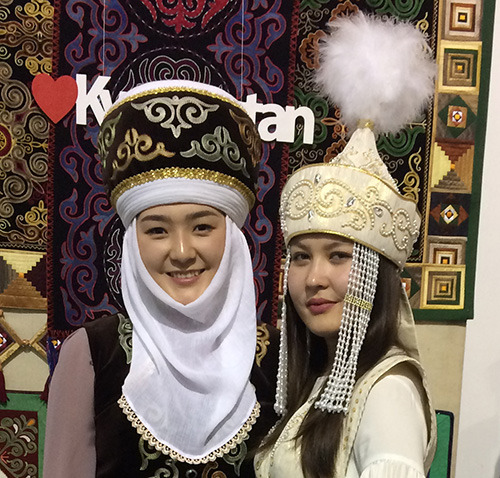
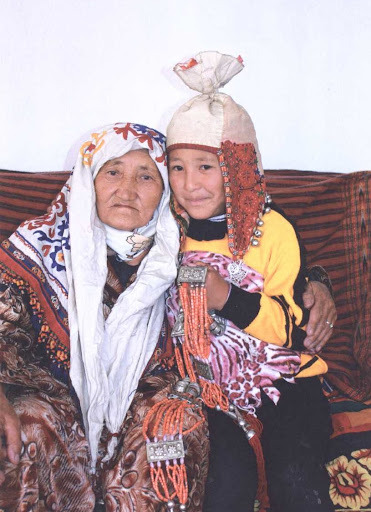
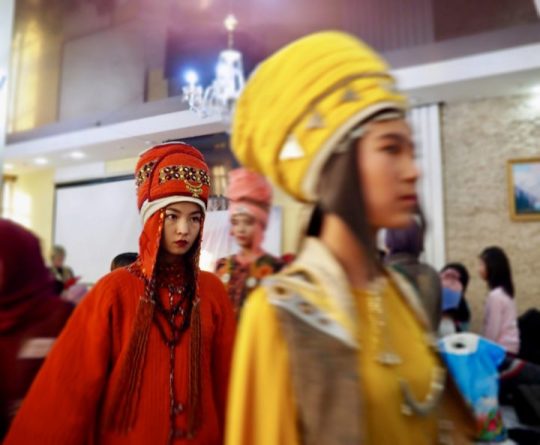
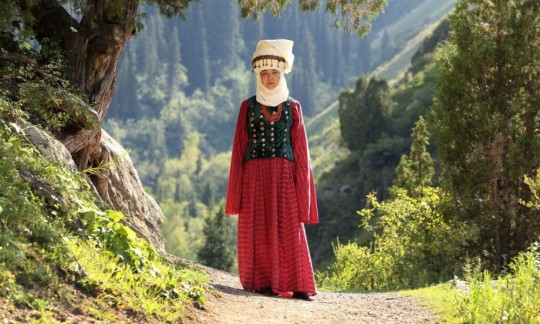
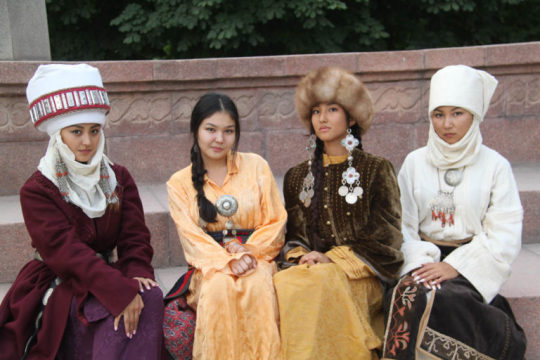
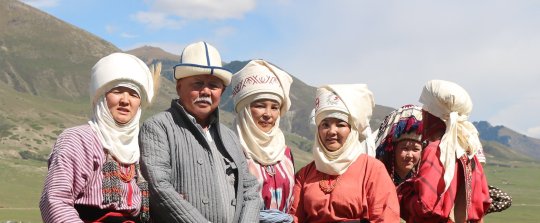
these were all obtained from a quick google search of the names of some traditional casian (mostly kyrgyz) headdresses, so if you're interested in seeing more, they're very easy to find. i'll add an image description once i get back from work, but if someone wants to do it in the meantime, that would be greatly appreciated!
looking at these images, you can see many casian cultures use elaborate fabric wraps around our heads, similar to some arab cultures. like most arab cultures, casia has also been incredibly influenced by islam, with the countries now being a majority islamic rather than our historical majority of native totemistic religions. however, the similarity ends there. the islam practiced in arab cultures and the islam practiced here are two entirely different religions that do each other a disservice to compare them as similar. we are not arab, and the arab people are not central asian. the last time our cultures directly influenced each other is most likely around 4th century AD. so, really not a lot of overlap there, given the fact that it's been thousands of years since then
to sum it up, the racism and fetishization in starember's work, mxtx's works, and cmedia as a whole are not directed against arab cultures. they are a direct attack on central asian cultures, and saying otherwise takes away the exceedingly limited societal presence we have, so i would greatly appreciate it if those interested in helping casian visibility were all clear on this! barely anyone knows we exist, and those that have heard of us often don't even know what casia is. it is incredibly harmful to have the first big break we have in media discussing racist stereotypes against us be immediately attributed to any unrelated culture
#thank you for the ask!#this is a very very sore spot for me#starember#tgcf#racism in inner asia#casia#anon#ask#jazıp
401 notes
·
View notes
Photo
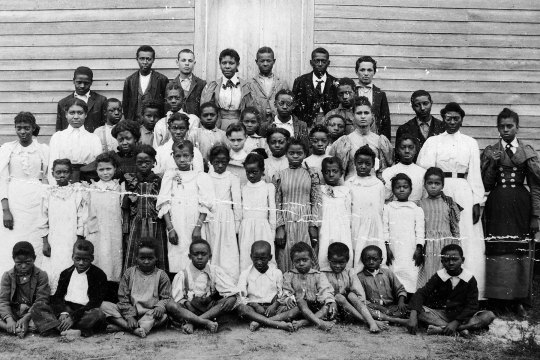
A slave name is the personal name given by others to an enslaved person, or a name inherited from enslaved ancestors. The modern use of the term applies mostly to African Americans and West Indians who are descended from enslaved Africans who retain their name given to their ancestors by the enslavers.

Changing from a slave name to a name embodying an African identity became common after emancipation in the 1960s by those in the African diaspora in the Americas seeking a reconnection to their African cultural roots

A number of African-Americans and Afro-Caribbeans have changed their names out of the belief that the names they were given at birth were slave names. An individual's name change often coincides with a religious conversion (Muhammad Ali changed his name from Cassius Clay, Malcolm X from Malcolm Little, and Louis Farrakhan changed his from Louis Eugene Walcott, for example) or involvement with the black nationalist movement (e.g., Amiri Baraka and Assata Shakur).
Some organizations encourage African-Americans to abandon their slave names. The Nation of Islam is perhaps the best-known of them. In his book, Message to the Blackman in America, Nation of Islam leader Elijah Muhammad writes often of slave names. Some of his comments include:
"You must remember that slave-names will keep you a slave in the eyes of the civilized world today. You have seen, and recently, that Africa and Asia will not honor you or give you any respect as long as you are called by the white man's name."
"You are still called by your slave-masters' names. By rights, by international rights, you belong to the white man of America. He knows that. You have never gotten out of the shackles of slavery. You are still in them."
The black nationalist US Organization also advocates for African-Americans to change their slave names
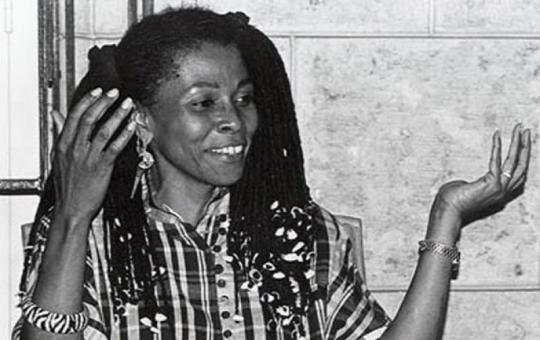
Assata Olugbala Shakur (born JoAnne Deborah Byron; July 16, 1947, sometimes referred to by her married surname Chesimard) is a former member of the Black Liberation Army, who was convicted of the first-degree murder of State Trooper Werner Foerster during a shootout on the New Jersey Turnpike in 1973. Shakur was also the target of the FBI's COINTELPRO program, a counterintelligence program directed towards Black Liberation groups and activists
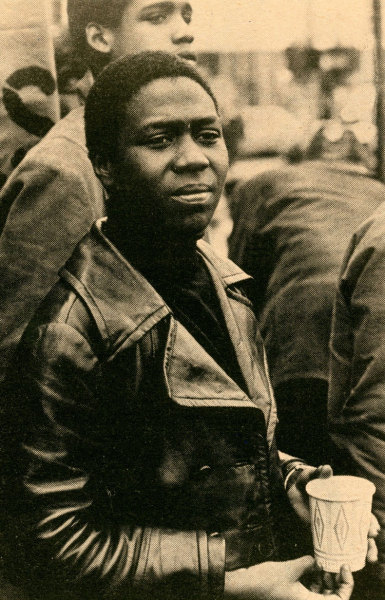
Afeni Shakur (born Alice Faye Williams; January 10, 1947 – May 2, 2016) was an American activist and businesswoman who was the mother of American rapper and actor Tupac Shakur.

Chaka Adunne Aduffe Yemoja Hodarhi Karifi Khan. Yvette Marie Stevens (born March 23, 1953), better known by her stage name Chaka Khan, is an American singer, songwriter and musician. Her career has spanned nearly five decades, beginning in the 1970s as the lead vocalist of the funk band Rufus. Khan received public attention for her vocals and image. Known as the Queen of Funk,Khan was the first R&B artist to have a crossover hit featuring a rapper, with "I Feel for You" in 1984. Khan has won ten Grammys and has sold an estimated 70 million records worldwide.
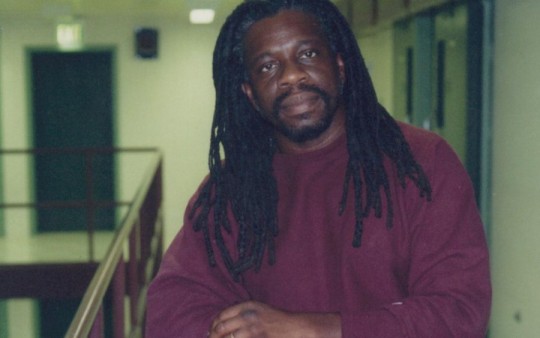
Mutulu Shakur (born Jeral Wayne Williams; August 8, 1950) is an American activist and former member of the Black Liberation Army, sentenced to sixty years in prison for his alleged involvement in a 1981 robbery of a Brinks armored truck in which a guard and two police officers were killed.
Shakur was politically active as a teen with the Revolutionary Action Movement (RAM) and later the black separatist movement the Republic of New Afrika. He was stepfather to the late rap artist Tupac Shakur.

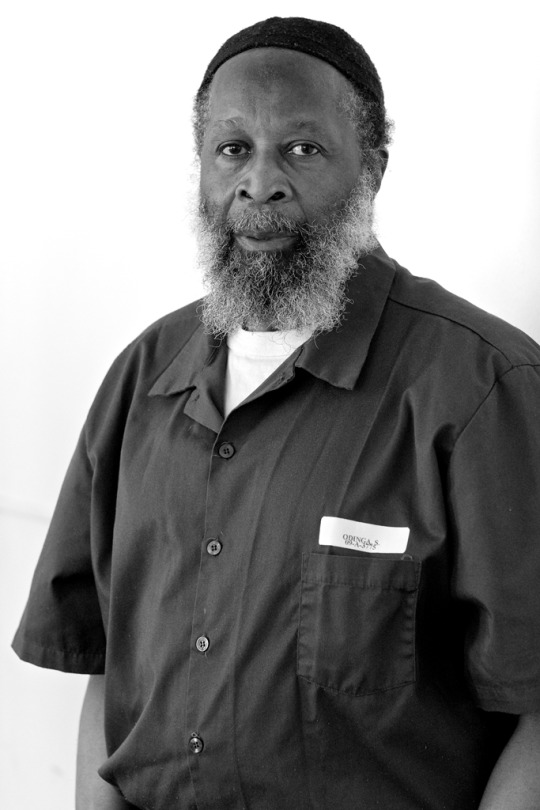
Sekou Odinga (born Nathanial Burns) is an American activist who was imprisoned for actions with the Black Liberation Army in the 1960s and 1970s.
In 1965, Sekou joined the Organization of Afro-American Unity (OAAU), founded by Malcolm X. After Malcolm's death the OAAU was not going in the direction he wanted and in 1967 he was looking at the Black Panther Party. In early 1968 he helped build the Bronx Black Panther Party. On January 17, 1969 two Panthers had been killed by members of Organization Us (a rival Black Nationalist group) and a fellow New York Panther who was in police custody was brutally beaten. Sekou was informed that police were searching for him in connection with a police shooting. At that point, Sekou joined the black underground with the Black Liberation Army.
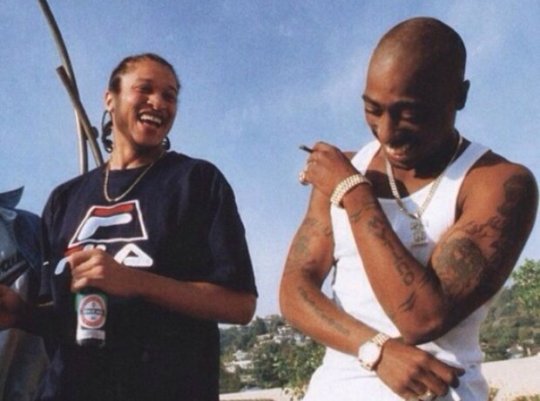
Yafeu Akiyele Fula (October 9, 1977 – November 10, 1996), better known by his stage name Yaki Kadafi, was an American rapper, and a founder and member of the rap groups Outlawz and Dramacydal. Kadafi's parents, Yaasmyn Fula and Sekou Odinga, were both members of the Black Panther Party. Fula and Tupac Shakur's mother, Afeni Shakur, were close friends, and Kadafi and Tupac were friends until their deaths in 1996.
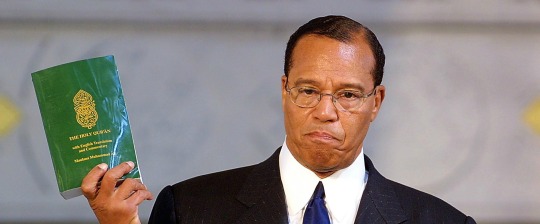
Louis Farrakhan Sr. ( born Louis Eugene Walcott; May 11, 1933), formerly known as Louis X, is an American minister who is the leader of the religious group Nation of Islam (NOI), which the Southern Poverty Law Center describes as a black nationalist group. Previously, he served as the minister of mosques in Boston and Harlem and had been appointed National Representative of the Nation of Islam by former NOI leader Elijah Muhammad.
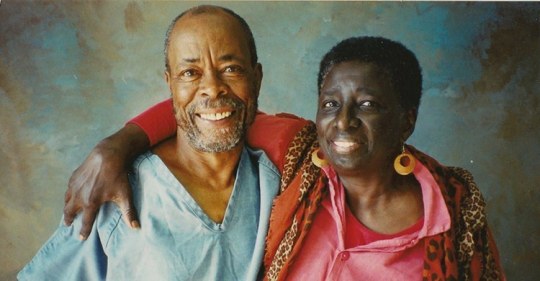
Sundiata Acoli (born January 14, 1937, as Clark Edward Squire) is a former member of the Black Panther Party and the Black Liberation Army. He was sentenced to life in prison in 1974 for murdering a New Jersey state trooper

Prince. Abdul-Rahman ibn Ibrahima Sori (Arabic: عبد الرحمن ابن ابراهيم سوري) (1762–1829) was a Fula nobleman and Amir (commander or governor) who was captured in the Fouta Jallon region of Guinea, West Africa, and sold to slave traders in the United States in 1788.[1] Upon discovering his noble lineage, his owner Thomas Foster began referring to him as "Prince",[2] a title he kept until his final days. After spending 40 years in slavery, he was freed in 1828 by order of U.S. President John Quincy Adams and Secretary of State Henry Clay, after the Sultan of Morocco requested his release.
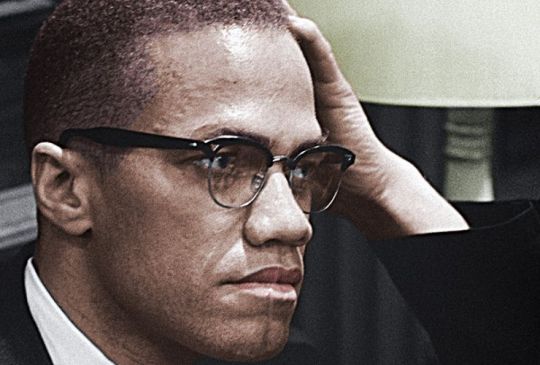
Omowale or Malcolm X (May 19, 1925 – February 21, 1965) was an American Muslim minister and human rights activist who was a popular figure during the civil rights movement. He is best known for his controversial advocacy for the rights of blacks; some consider him a man who indicted white America in the harshest terms for its crimes against black Americans, while others accused him of preaching racism and violence. He has been called one of the greatest and most influential African Americans in history.
Born Malcolm Little in Omaha, Nebraska, he spent his teenage years living in a series of foster homes following his father's death and his mother's hospitalization. Little engaged in several illicit activities, and was eventually sentenced to ten years in prison in 1946 for larceny and breaking and entering. In prison, he joined the Nation of Islam (NOI) and changed his name to Malcolm X because, he later wrote, Little was the name that "the white slavemaster ... had imposed upon [his] paternal forebears". After being paroled in 1952, he quickly became one of the organization's most influential leaders.
Expressing many regrets about his time with them, which he had come to regard as largely wasted, he instead embraced Sunni Islam. Malcolm X then began to advocate for racial integration and disavowed racism after completing Hajj, whereby he also became known as el-Hajj Malik el-Shabazz

Tupac Amaru Shakur; born Lesane Parish Crooks, June 16, 1971 – September 13, 1996), also known by his stage names 2Pac and Makaveli, was an American rapper and actor.He is considered by many to be one of the greatest rappers of all time. Much of Shakur's work has been noted for addressing contemporary social issues that plagued inner cities, and he is considered a symbol of resistance and activism against inequality
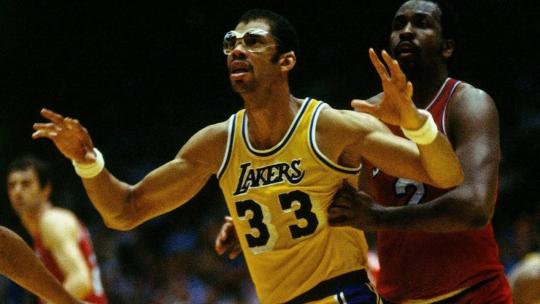
Kareem Abdul-Jabbar (born Ferdinand Lewis Alcindor Jr.; April 16, 1947) is an American retired professional basketball player who played 20 seasons in the National Basketball Association (NBA) for the Milwaukee Bucks and the Los Angeles Lakers. During his career as a center, Abdul-Jabbar was a record six-time NBA Most Valuable Player (MVP), a record 19-time NBA All-Star, a 15-time All-NBA selection, and an 11-time NBA All-Defensive Team member. A member of six NBA championship teams as a player and two more as an assistant coach, Abdul-Jabbar twice was voted NBA Finals MVP. In 1996, he was honored as one of the 50 Greatest Players in NBA History. NBA coach Pat Riley and players Isiah Thomas and Julius Erving have called him the greatest basketball player of all time
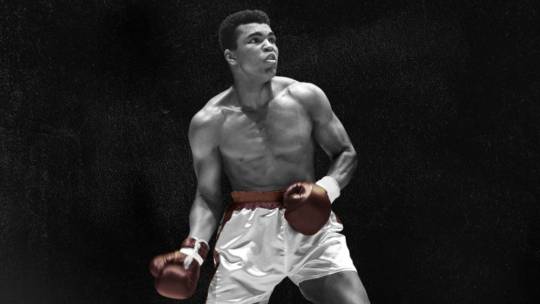
Muhammad Ali (/ɑːˈliː/; born Cassius Marcellus Clay Jr.;January 17, 1942 – June 3, 2016) was an American professional boxer, activist, and philanthropist. Nicknamed "The Greatest," he is widely regarded as one of the most significant and celebrated sports figures of the 20th century and as one of the greatest boxers of all time.

Kwame Ture (/ˈkwɑːmeɪ ˈtʊəreɪ/; born Stokely Standiford Churchill Carmichael, June 29, 1941 – November 15, 1998) was a prominent American socialist organizer in the civil rights movement in the United States and the global Pan-African movement. Born in Trinidad, he grew up in the United States from the age of 11 and became an activist while attending Howard University. He eventually developed the Black Power movement, first while leading the Student Nonviolent Coordinating Committee (SNCC), later serving as the "Honorary Prime Minister" of the Black Panther Party (BPP), and lastly as a leader of the All-African People's Revolutionary Party (A-APRP).

Amiri Baraka (born Everett LeRoi Jones; October 7, 1934 – January 9, 2014), previously known as LeRoi Jones and Imamu Amear Baraka, was an American writer of poetry, drama, fiction, essays and music criticism. He was the author of numerous books of poetry and taught at several universities, including the State University of New York at Buffalo and the State University of New York at Stony Brook. He received the PEN/Beyond Margins Award, in 2008 for Tales of the Out and the Gone
As long as you around here wearing the white men’s name bragging about this so called democracy, you will always be looked down up, by the rest of the world-Malcom X
#amiri baraka#everett leori jones#black panthers#names#name changes#tupac shakur#Muhammad Ali#african#african culture#african people#african american#assata shakur#afeni shakur#mutulu shakur#chaka khan#stokey#kwame ture#kwame#sekou#sekou odinga#brown skin#slave names#slaves#yaki#yaki kadafi#african people revolutionary#farrakhan#louis farrakhan#sundiata#malcolm x
7K notes
·
View notes
Text
why i disliked “the traitor baru cormorant”
so...recently i read Seth Dickinson’s The Traitor Baru Cormorant. i bought it thinking, Cool, an insightful fantasy series for me to get into while i wait to hear whether i passed my qualifying exams! i have some time before the semester starts!
and then i absolutely hated it and spent every minute cataloguing what i thought Dickinson got wrong.
...uh, if you want to get the tl;dr of the liveblog i gave the gf, here’s the top three reasons i disliked this book:
1) not a fan of the “strong female character” trope
yes, Baru doesn’t sling around a sword or shoot arrows better than Anyone In The Whole World. but Dickinson IMMEDIATELY tells us (not shows, tells) that she’s good at math, she’s clever at picking apart strategic scenarios, she’s a savant. (tbh, i don’t love how he shows this, either, with the standard child-prodigy-who-catches-the-attention-of-a-powerful-adult trope.) in Dickinson’s crafted world, her math skills aren’t entirely unusual: women (for...some reason?) are stereotyped as being good at calculations, despite also being aligned with hysteria and too many emotions. this bothers me more than it’s probably supposed to, because the sexism in this novel doesn’t really seem to follow an internal logic. i guess it’s so we can have a woman as the protagonist? also...hoo boy...her “savant” characterization bothers me because...she’s heavily coded as South East Asian (...maaaybe Philippines or Native Hawaii, but as i’ll get to later, Dickinson doesn’t make a huge distinction). uh...model minority stereotypes anyone? yes, within the text, plenty of people associated with the Empire comment that it’s impressive someone of her background got into a position of power so young. at the same time, i’m sure that sounds familiar to so many Asian-identified people! the constant tightrope of being expected to perform to a certain (white, Western) standard while also being Othered. mostly this bothers me because Baru is also characterized as...a sellout for the Empire. sure, her stated goal is to undo the Empire from within, but [MAJOR SPOILERS] in the end it appears that her actual goal was to attain enough power that the Empire would let her be a benevolent dictator over her home island? and it’s only after a major PERSONAL betrayal that she revises this plan? [END SPOILERS] Baru also assimilates without much pain or sacrifice. she hardly ever thinks about her parents or her childhood home. she willingly strips herself of cultural signifiers and adapts to Empire norms (apart from being a closeted lesbian, which...yeah, i’ll get to that, too). and it’s not that Dickinson doesn’t TRY to make her a nuanced character, but...to me, it feels so painfully obvious that this is not his experience. it feels almost...voyeuristic.
...much like his descriptions of wlw desire!
2) we get it, you read Foucault
the categories of sexual deviance are based entirely on a Western Victorian-era medical discourse around non-heterosexual forms of desire, but Dickinson ignores the network of sociocultural, religious, and historical contexts that contributed to that specific kind of discourse. he uses the terms “tribadism” and “sodomy” but those ideas CANNOT EXIST outside a Euro-American Christian context. yes, a huge part of the 19th century involved the pathologization of sexual and romantic desire (or lack thereof). but that in turn goes back to a history of medicine that relied on the “scientific method” as a means of studying and dissecting the human body--and that method in itself is a product of Enlightenment thinking. Theorist Sylvia Wynter (whomst everyone should read, imho) discusses how the Enlightenment attempted to make the Human (represented by a cisgender, heteronormative, white man) an agent of the State economy. every categorization of so-called deviance goes back to white supremacist attempts to define themselves as ‘human’ against a nonwhite, non-Christian Other. and IN TURN that was ultimately founded on anti-Black, anti-Indigenous racism. at this point it’s a meme in academic circles to mention Foucault, because so many scholars don’t go any further in engaging with his ideas or acknowledge their limits. but SERIOUSLY. Dickinson crafts the Masquerade as this psuedo-scientific empire that’s furthering erasure of native cultures, but...where did these ideas come from? who created them? what was the justification that gave them power? [MINOR SPOILER] blaming the Empire’s ideology on a handful of people behind the Mask who crafted this entire system makes me...uncomfortable, to say the least. part of what gives imperialism its power is that a lot of ordinary people buy in to its ideas, because it aligns with dominant belief systems or gives them some sense of advantage.
also speaking of cultural erasure...
3) culture is more than set dressing
again, to reiterate: Baru does NOT think back to her childhood home for longer than a couple passing sentences at various points in the narrative. but even though the early chapters literally take place on her home island, i don’t get a sense of...lived experience. this is true of ALL of the fantasy analogues Dickinson has created in his Empire. i felt uncomfortably aware of the real world counterparts that Dickinson was drawing inspiration from. at the same time...there are basically no details to really breathe life into these various fantasy cultures. i HATE the trope of “fantasy Asia” or “fantasy Africa” or “fantasy Middle East” that’s rampant among white male sff writers. Dickinson does not get points from me for basically just expanding that to “fantasy South East Asia,” “fantasy Mongolia,” “fantasy South America,” and... “fantasy Africa,” plus some European cultures crammed in there. he’s VERY OBVIOUSLY drawing on those languages for names, but otherwise there’s no real sense of their religious practices, the nuances of their cultures, the differences between those cultures (besides physiological, which...oh god). part of that is probably supposed to be justified by “well, the Empire just erased it!!!” but that’s not an excuse imho.
also...in making the Empire the ultimate signifier of the evils of imperialism...Dickinson kind of leans into the “noble savage” stereotype. Baru’s home island is portrayed as this idyllic environment where no one is shamed for who they love and gender doesn’t determine destiny and there are no major conflicts. (there is a minor nod to some infighting, but this is mostly a “weakness” that the Masquerade uses as an excuse to obliterate a whole tribe.) Dickinson justifies young Baru’s immediate assimilation as her attempt to figure out the Masquerade’s power from within, but given that the Masquerade presumably killed one of her dads and her mom maybe advocates a guerilla resistance...it’s weird that Baru basically abandons her family without a second thought. yeah, i get that she’s a kid when the Masquerade takes over the island, but...that’s still a hugely traumatic experience! the layers of trauma and conditioning and violence that go into this level of colonization are almost entirely externalized.
(later it’s implied that Baru might qualify as a psychopath, and tbh that feels like an excuse for why we haven’t gotten any sense of her inner world, not to mention kind of offensive.)
this isn’t exhaustive but...
it’s not that i don’t think white people shouldn’t ever address POC experiences in their books. just...if your entire trilogy is going to revolve around IMPERIALISM IS BAD, ACTUALLY, maybe you should contribute to the discourse that Black, Brown, and Indigenous authors have already done. reading this book made me so, so angry. i did not feel represented! i felt like i was being talked down to, both on a critical theory level AND on a craft level. there are SO MANY books by actual BIPOC and minority authors that have done this better. N.K. Jemisin’s Broken Earth Trilogy and her current Cities series. Nnedi Okorafor’s Binti trilogy. Leigh Bardugo’s Ninth House remains one of the more powerful novels i’ve read on how The System Is Out To Destroy You, That Is The Point. (Bardugo is non-practicing Spanish and Moroccan Jewish on one side of her family, and her character Alex is mixed and comes from a Jewish background!)
...
there’s not really a point to this. i get a lot of people have raved about this book. good for them. if that’s you, no judgment. i’m not trying to argue IF YOU LIKED THIS YOU ARE PROBLEMATIC. i’m just kind of enraged that a white dude wrote about a Brown lesbian under a colonial empire and that THIS Brown lesbian under a colonial empire couldn’t even get behind the representation. also kind of annoyed that it’s the Empire of Masks and Dickinson either hasn’t read Fanon or didn’t see fit to slip in a Fanon reference, which like. missed opportunity.
#meta#book review#maybe y'all can get enjoyment from my rage#also i don't want to publish this on like. goodreads.#i'm not out to destroy Seth Dickinson personally#i know this was a highly reviewed book#i just...hated it#and i figured putting the rage on my blog is less harmful#than leaving a one star review#while also maybe giving someone the insight#for why they might not want to read this#the traitor baru cormorant#the masked empire
13 notes
·
View notes
Text
The shortcomings of secular leftism become obvious every single time Charlie Hebdo published another fucking piece of hate speech and they refuse to acknowledge it as hate speech even though it’s basically just a nazi-era antisemitic caricature with “PROPHET MUHAMMAD” written underneath it.
And maybe some “anti-racists” or something will pipe in to “defend” us with “oh, it iz against zeir religion to draw ze mahomet” which also makes us look ridiculous because 1. that’s only kind of true, there is a wider discussion of that and 2. people are basically not wrong to say that enforcing that is a police state measure that shouldn’t be acceptable. So all they’re doing is making a straw-man to represent the weakest, most hyperconservative possible take that could come out of a Muslim and is actually genuinely irreconcilable with a lot of the left’s values, values which I, and most Muslims, and most leftists, honestly hold. What’s more is that the position they present is genuinely violent and bad; the reason they shouldn’t draw the Prophet isn’t because it’s “against my religion” but because in the political climate we live in it’s inherently an act of hate speech to do so..
Westerners don’t consider it offensive to make fun of their respected political and religious figures, and this is a genuine cultural difference between them and a lot of Muslims particularly from south asia. I don’t think they should, I think the westerners should be free to “practice their culture” or whatever when they’re not killing my family about it. So when the liberals make this purely an issue of “oh ze iZlAm SaYs zat it iz, ‘ow you say, ‘ArAaAaAaM to draw zeir prophet!” they’re making us look like people who want to violently enforce something based solely on our (real or alleged) cultural values, which still agrees that we’re trying to ~eNfOrCe sHaRiA LaW~ in europe. If all they want to do is draw him, whatever. We can talk about that but it’s a different conversation.
Because when they draw Jesus they’re not drawing him as a hook-nosed banker jew with a suicide vest and a child bride, they’re drawing him in a way that is basically respectful and possibly with maybe a thumbs up if they want to be edgy, like it’s fucking different and if you can’t see that you’re just not engaging in good faith.
Aside from the cartoon itself, which nobody will even see by comparison, the publication of it in the first place, surrounded by a bunch of media fanfare and liberal anticipation, is, itself, a massive piece of performance art with the message that it’s good to #trigger all the angry barbarian peoples from out yonder in order to civilise us to French sophistication and defend freeze peach in contrast to the eastern despotism from which we all eagerly await western liberalism to free us, when we’re not busy migrating to the west in hordes to impose it on them from our positions of extreme political and social influence as refugees of ongoing global conflicts and genocides.
This recent publication comes weeks after Macron outlined new repressive police measures which had the explicit, stated purpose of stopping Muslims in France from developing an independent culture from the mainstream in a country where there’s literally a fucking burka ban that “even” liberals defend as “french culture”.
The basic message is secular fascist newspapers can do whatever it is they want and any voiced objection will be met immediately with a harsh punitive action from both the state and polite society. Again the secular left refuses to acknowledge that this is the situation and that this is a measure meant to humiliate a thoroughly subjugated people. They consider that they should be “respectful” of “our beliefs” but they do not actually criticise the power play against us and even participate in it by proclaiming themselves mediator instead of deferring to Muslims on this issue.
These basic normal foundational cornerstones of French culture, and global liberalism more broadly, tangibly and obviously lead to unthinkable violence against us on a global scale, and it’s good to be radicalised against that. The issue isn’t that it “leads to extremism” as if each of us has an inner terrorist just waiting for us to hulk out when we experience one too many microaggressions, but that Charlie Hebdo is actually a fascist publication and a huge part of the justifying apparatus for the past 20 years of western re-colonisation of the middle east, and, again, everyone should be radicalised against that because it is bad, if we’re radicalised against it and you’re not that’s a you problem and reflects a shortcoming in your analysis or organisation or both.
But even the liberals who think (for whatever reason) that they’re radicals will talk about “preventing radicalisation” among Muslim youth as if radicalism is some brand that belongs to them and them exclusively and we can’t be allowed to get our little terrorist mitts on it. They’re allowed to be radical and we’re not. And that right there is how you can tell they aren’t serious about the whole revolution thing, because revolution as they understand it demands a broad-based coalition of people willing to take direct action and who have a common analysis (that it’s their job to at least inform with their theoretical knowledge) about which actions should be taken and against what. They make no effort whatsoever to reach out to our obviously highly motivated and marginalised community with any of their talk of class solidarity because they’re a part of the same apparatus which keeps us marginalised and cooperate fully with it as far as we are concerned.
And the secular left agrees that the cartoons are racist and agrees that that’s bad and agrees that french liberalism sucks ass and is violent, racist, and nakedly imperialistic, but there has never been an instance of a left organisation to my knowledge that’s gone so far as to actually stand in solidarity with Muslims protesting against liberal Islamophobia. While the secular left may condemn islamophobia on its own terms, it never stands with Muslims and accepts Muslim leadership even when we’re protesting obvious violence and hate speech directed at us. Secular leftism and secular antifa agree that it’s good to be radical against a violent society in which hate speech is a normal accepted and even expected value and in which global leaders openly call for repressive police state measures against Muslims specifically on a good day, they even agree that it’s good and proper to use violence in such situations to prevent authoritarian overreach against persecuted minorities, but the moment we do it, it’s an act of terrorism that all radicals liberals have to Condemn Condemn Condemn or else.
And if we defend ourselves as Muslims, as Hannah Arendt called for when she said that if one is attacked as a Jew one must defend oneself as a Jew, not as a world-citizen or a defender of the rights of man, or some shit, global radliberal leftism will never have a word in support of us.
It claims to be better, and it might actually even be genuinely preferable, but it still lacks any interaction or understanding of Muslim analyses of the violence against us and don’t even think to try to theorise it themselves outside of some shallow acknowledgement of a purely economic “imperialism” or racism, which is only a part of it. And so as a result the global left inevitably ends up with a far-right analysis of one kind or the other on this; either censorship is good if it hurts people (”of colour”)s feelings or it’s bad to protest hate speech by unapproved means.
23 notes
·
View notes
Text
Good Afternoon #BHM
Bishop of Dover, Rose Hudson-Wilkin Chaplain to the Queen and the Speaker of the House of Commons. Bishop Hudson-Wilkin who was born in Jamaica, travelled to the UK in 1979 to train as an evangelist at the Church Army College in London.
On completing her training, her soon to be husband Ken (who she met at college) followed Bishop Hudson-Wilkin out to Jamaica where they married and both worked with the Church.
Returning to the UK in 1985, Bishop Hudson-Wilkin put herself forward to be ordained as a deacon the initial response from the Church was that she should really be looking after her husband and daughter. To which she responded her husband was perfectly capable of looking after himself, and that she wouldn’t have put herself forward had she not thought about how she would manage with her child.
In 1991, Bishop Hudson-Wilkin was ordained as a deacon and served her curacy at St Matthew’s Church in Wolverhampton. Three years later, she was ordained a priest.
In an interview Bishop Hudson-Wilkin said “I remember saying to a group of lay and ordained people while working as a diocesan officer, If you had a vacancy and I applied for it, would you consider me? One woman popped her hand up, and said, “But why would we? We don’t have any black people here…” I laughed. Oh, my goodness, I said. Isn’t it interesting that white priests can go to Africa, Asia, to our inner cities, they can minister to everybody, but somehow black priests are only allowed to minister to black people? And then left it at that for them to ponder. “
On 23 April 1994, approximately a month after it became possible for women to do so, Bishop Hudson-Wilkin was ordained as a priest in Lichfield Cathedral. In 2007 she was appointed as Chaplain to the Queen.
In 2010 Bishop Hudson-Wilkin was appointed as Chaplain to the Speaker of the House of Commons in 2010, a role she shares with another priest. One newspaper described her counterpart as an “Oxford graduate” and Bishop Hudson-Wilkin as “the girl from Montego Bay”. In an interview with the Guardian newspaper, Bishop Hudson-Wilkin said “I was lucky because I was born and brought up in Jamaica, where I saw people who looked like me in all walks of life. I knew that I existed and I knew that I could become whatever I wanted to be. That stood me in good stead, and I came to the UK with a confidence that said, “You are.” I had, as Judge Judy would say, already been cooked. And so, negativity didn’t – and doesn’t – imprint on me”.
On November 30th 2019 in a service at Canterbury Cathedral Bishop Hudson-Wilkin was installed as the Bishop of Dover.
Sources

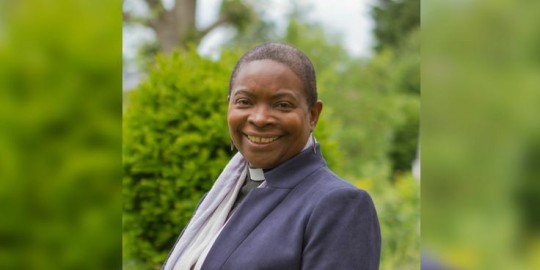
https://www.vogue.co.uk/news/article/rose-hudson-wilkin-first-black-female-bishop-uk
https://www.theguardian.com/world/2019/nov/23/first-black-woman-bishop-church-england-rose-hudson-wilkin-dover-racism-inequality
#black art#positive vibes#good afternoon#BHM#Black History Month#Bishop of Dover#Rose Hudson-Wilkin#Bishop Hudson-Wilkin#Quuens Chaplain
1 note
·
View note
Photo

Why the Fox Eye Trend is Problematic
Recently, this pose and makeup look has been circulating on various social media platforms. Celebrities, influencers, high-fashion models, and magazines have jumped onto the “fox eye” trend by first lining the inner and outer corners of the eye through makeup, then positing by pulling the eyes and cheeks backwards on the temples, making the face appear more defined, cat-like, or “snatched”. It also gives the eyes a more elongated, lifted, and slanted eye look. This look continues to be amplified and popularized by non-Asian women across the internet. However, this trend has offended many individuals of the Asian [American] community.
For decades, this motion of pulling back the eyes has been used to ridicule, isolate, and demean Asian people, generally those originating from Eastern Asia. Often paired with racial slurs, mimicking of language/accent, and yellow-face, this particular action is one of the most common displays of casual racism against Asian immigrants and Asian Americans. This problematic behaviour still happens today – in schools, in public, and in the workplace, to name a few. Young students are still ridiculed against due to their skin colour and facial features, saturating the idea of a sense of inferiority and vanity-based insecurity from a young age.
Why is a facial feature that has been deemed unattractive on Asians for years, now desirable by white individuals? This trend is similar to the concept of culture appropriation, where many white women/models have taken the makeup look and pose to accentuate features they find to be beautiful in current times; what used to be an unwanted and isolating characteristic has now been turned into a trend by white public figures in the fashion and beauty industry. Although cat-like, almond shaped eyes aren’t only strictly unique to the Asian community, it’s a distinguishing feature that many Asian individuals have been made fun of for being born with.
This trend is one of the countless microaggressions faced by coloured minorities to this day. Not to take away any traction and attention from Black Lives Matter movement at this current time, but racism towards Asians have been so deeply normalized in our society that it’s barely even a conversation.
https://advancingjustice-aajc.org/
2 notes
·
View notes
Text
Books “Read” in 2019
I am going to rank these by how much i enjoyed them vs. any actual literary quality. often well written books aren’t always the most entertaining books.
Note: i listen to many of these books at work, which is why i am able to go through so many of them in a year.
List from 2017
List from 2018
------- My Favs of the Year ----
Novels from The First Law:
Best Served Cold (#1), The Heroes(#3), Red Country(#4), Sharp Ends(#5).
A Little Hatred (#2) (Age of Madness, sequel to The First Law)
I read “The First Law Trilogy” about a year or two ago and finally got around to reading the rest of the books, just in time for a new series taking place in the same world to start up (Age of Madness) and now i am waiting like everybody else for the next two books to come out in 2020 and 2021. A Little Hatred shouldn’t be read as a stand alone, a lot of what goes on is dependent mainly on knowledge from the first trilogy and in The Heroes, then bits and pieces from Best Served Cold and Red Country. So much of your enjoyment of each book is based on what you’ve learned in other ones (character development or seemingly useless information being not so useless later).
Age of Legend (Book 4, Legend of the First Empire)
This is more-or-less an “aftermath” book where the main characters are still reeling about what happened in the previous book and are trying to make plans for what they are going to do next. I still like the characters and the world/setting it takes place in.
House of Assassins (Saga of the Forgotten Warrior, Book 2)
I’ve been waiting for the next book in this series to come out the second i finished the first book in the series. It is one of those Science fiction in the disguise of Fantasy settings and I am on the edge of my seat waiting to see how that plot/revelation comes out (I am certain that the location the story takes place is Earth, more specifically around Asia/India, but in a post-invasion apocalypse setting where nobody remembers anything prior to the invasion). I also really like how much of a badass Ashok is... i have a thing for emotionally stunted badass characters, especially when their flaws are held up to a mirror and have real consequences.
R. R. Haywood’s Worldship Humility & Extinct (Extracted, Book 3)
I love the way Haywood writes characters and dialog. I was at-first iffy about WSH, but was won over after i warmed up to the new characters.
Shades of Magic Trilogy (A Darker Shade of Magic, A Gathering of Shadows, A Conjuring of Shadows)
Solid multi-verse and magic system world. Well-written characters, some minor nitpicks on plot points, but can be easily ignored. LGBTQ rep, the gays don’t stay buried.
“Don’t you have enough [knives]?”
“You can never have too many.” [me, every time: LOL]
One of the few times when a character deserves a redemption arc, doesn’t really get one, dies, and i am perfectly fine with it because it is done well.
Assassin’s Fate (Fitz and the Fool, Book 3)
I read this one in book-book form, but i already knew most of the emotionally painful parts of the book by spoiling it to myself when it first came out a couple years ago. The main appeal is the inner monologues of the two main characters, even if like 50% of this trilogy is basically spending weeks/months trying to go from Point A to Point B, when many other books would have glossed over the details of travel.. but you can really feel the stress as they dwell in their thoughts and struggles.
Madeline Miller’s The Song of Achilles & Circe
Re-Imagining of the Iliad and The Odyssey. Focusing not on the characters of Achilles or Odysseus, but on Petroclus (Achilles’ lover) and Circe the sea nymph witch that Odysseus had an affair and child with.
The Spear of the Stars (Cycle of Galand, Book 5)
Still love Dante and Bleys... This is where they really get into the meat of world building and solving the mysteries of the Arawn Cycle (the book/bible) and peel back the layers of their reality.
Dust (Silo Book 3)
A great ending to a good series, it answers whether or not humanity can or has survived what had caused them to be locked away in the silos.
Blackthorn and Grim (Dreamer’s Pool, Tower of Thorns, Den of Wolves)
I like the premise of the books, the two main characters first seeking out revenge, but end up wanting to become better people due to magic shenanigans.... One part Fantasy, One Part Mystery, One Part Lovestory.
The Dispatcher (Audible Free Book)
I want a whole series based off this novella. It is John Scalzi so he can write a good story. I had previously read Android’s Dream by him, which it didn’t make it into my top-10 that year, but was still decent, even if the subject matter was a bit gross... The Dispatcher world is a Sci-Fi Noir, not quite Cyberpunk, where people don’t die by anything other than natural causes. The Dispatcher’s job is to kill people before something goes does wrong and the person “resets” to when they where safe and sound.
---- this is the “Above Average” Zone ----
All the Pretty Horses & Blood Meridian: Or the Evening Redness in the West
The master of bleak and depressing fiction. if regular Dark Fiction isn’t enough for you.... there is Cormac McCarthy books. Get use to the “purple prose” that fills up pages with no dialog.
The Golem and the Jinni
Supernatural world of the far past dealing with Edwardian New York and Immigration. It not only is a “fish out of water” story of the two main characters trying to fit in with society but they are among communities that are also new to America and trying to find their own place in the world. There are love subplots but most of those kind of fizzle out.
The Axe and the Throne: Bounds of Redemption Vol. 1.
“Discount First Law” book... it is lacking the dark humor that made TFL series far more entertaining. This was also the book that was prefaced by warning people about how grim and dark the setting was... Hahahaha. I still found it entertaining none the less, and hope the rest would show up on audible soon.
Black Snow, White Crow (Audible Free Book)
Another one of those short stories that should have a larger saga to its name. Fantasy Industrial Punk. It has the whole equality role reversal thing going on, it isn’t done quite as well as Left Hand of Darkness (but that book leaned onto the boring side of things).
Stephen King’s IT, Pet Semetary, and Carrie
It’s Stephen King. Classic King. Not much else to say.
Watership Down
Depressing Rabbit Book. Though I did like all the stories and mythology the rabbits had.
Bloody Acquisitions (Fred the Vampire Accountant, Book 3)
A series that is always fun to listen to. I wish the audio books were cheaper because they are rather short.
Lethal White (Cormoran Strike, Book 4)
shuddup, i don’t care if it is Rowling... i have a low-key crush on Cormoran.... he just hits that big-burly tragic-backstory man-shaped soft-spot of mine. These stories are also her “for adults” writings so... expect more racism and garbage values.
The Eye of the World (Book 1, Wheel of Time)
Classic set up to a long running series, though i am reluctant to go further as the middling books in this series are said to drag out the story too much.... It’s not as self-centered as Wizard’s First Rule and the characters are more relatable and stick to their fantasy tropes. This is the “mold” that other modern fantasy try to subvert by going “darker and edgier.”
The Exorcist
If you like the movie, read the book. There is a lot of back story that the movie wasn’t able to adapt.
---- This is the “AVERAGE, but Still Good” Zone ---
The Iliad and The Odyssey
Classics. I am still on the hunt for an unabridged version of Jason and the Argonauts story. I also have Virgil’s Aeneid in my wishlist to get too soon.
Phillipa Gregory’s Plantagonate Novels (The Lady of the Rivers, The Red Queen, White Queen, The Kingmaker’s Daughter)
Sometimes it is like reading the same book 5x in a row. other times you end up not liking the previous protagonist in a book you just finished reading because of how the current protagonist sees them from their POV.
Return of the King (Lord of the Rings, Book 3)
Read the other books last year and didn’t get around to this one for a few months.
Something Wicked This Way Comes
Fuck... I’m a janitor... why can’t i afford a house? If you liked Stephen King’s “IT” go back and read this book.
Alien Franchise Dramatizations: Alien: Sea of Sorrows, Alien: The Cold Forge (Audible Free Book) Alien III (Audible Free Book)
I don’t mind that they all are done with a full cast. Though often I end up wanting to find the actual book and listen to them with just one narrator and descriptions.
The Lion, The Witch, and the Wardrobe (Narnia, Book 1)
I would like to get the rest of the books in this series, but for books that are only 5-7 hours long they want 20$ a book for them. It needs to go into an omnibus.
Stephen Fry’s Victorian Secrets (Audible Free Book)
It’s Stephen Fry... he’s funny and a good narrator.
Wizard’s First Rule (Book 1, Sword of Truth)
I don’t like Richard. He started off alright, but even before he got tortured 2/3rds into the book, i was starting to dislike his personality. Other than that, the side characters and world are solid, but it was like taking an R-rated movie and cutting it down for TV. There is somethings that are vaguely described when i am use to harder fiction like ASoIaF, The First Law, Dresden, and McCarthy books actually describing those things.
Halloween (2018, movie novel)
Like I said when i first read the book, it would’ve benefited by a second re-write before being published. But, i like the movie and so I liked the book.
Don Quixote
Another classic read. I did find it hilarious that the Author spent a good chunk of the second book complaining about Fanfiction of his own book... in the 1600′s.
The Princess Diarist
I listened this book instead of going to see TROS. worth it.
Smoke Gets in Your eyes: And other Lessons from the Crematorium
Non-Fiction, If you want to know the ins and outs of the funeral business and get told in an informative yet non-clinical way with lots of tidbits and history facts tossed in as well as a semi-autobiographical account of the Author’s life.
--- These Books are “Alright” ---
Frank L. Baum’s Wizard of Oz books
I ligit got into an argument with a 70yo man in a comic book shop about how Canon the other Oz books were post Baum’s death. He was looking for Oz comic books and I brought up reading the first 14 books, and he’s like “There’s over 100 of them” and i was all “but all those are written by somebody else.” and he got all “they are still canon...”
The Hunchback of Notre Dame
If you want to know about the In//cel ideology in a classic literary form, this fits the bill. So much man pain.
A Christmas Carol (Tim Curry) (Audible Free Book)
Tim Curry, guys.....
The Poetic Edda (Norse God Mythology)
I listened this book twice. I bought two Edda books thinking I’d get some extra content, but no... same book just different production teams and readers. Returned the one with the worst translation.
Treasure Island (Audible Free Book, dramatization)
I need to read the actual book sometime, but i did like the cast and thought they did a good job.
Wally Roux, Quantum Mechanic (Audible Free Book)
A YA coming of age story about diversity and acceptance... with wacky science fiction.
Carmilla (Audible Free Book, dramatization)
The vampire before Dracula. Victorian Lesbian love story.
Even Tree Nymphs get the Blues (Audible Free Book)
A novella from one of those “love on the Bayou” romance series with supernatural creatures. Could practically take place in the same world of either True Blood, Dresden, or Fred the Vampire Accountant.
Mystwick School of Musicraft (Audible Free Book)
Harry Potter lite. For 10yo girls.
A Grown-up’s Guide to Dinosaurs (Audible Free Book)
I like dinosaurs.
Rivals! Frenemies Who Changed the World (Audible Free Book, Dramatization)
Interesting way on telling us about the Fossil Wars and Puma vs. Adidas.
True-Crime from Audible: Body of Proof (Audible Free Book), Midnight Son (Audible Free Book), The Demon Next Door (Audible Free Book), Killer By Nature (Audible Free Book)
Why is True-Crime or YA fiction the only halfway-decent things Audible is giving us? But yeah, these are basically the type of reporting that the two journalists from Halloween were trying to do. Where they go around and gather up information about semi-famous cases and present it in a Podcast-like format.
---- Meh... ---
Camp Red Moon (Audible Free Book)
Would’ve been better if they were actually written by R. L. Stein.
More Bedtime Stories for Cynics (Audible Free Book)
No... half of these aren’t written very well.
The Darkwater Bride (Audible Free Book, Dramatization)
The setting is nice, but it is far too .... Soap Opera Dramatic.
Junk (Audible Free Book)
A cross between Alien Invasion and Zombie outbreak, read by John Waters and written as if it was a bad version of a Philip K. Dick Novel.
Rip Off!! (Audible Free Book)
Most of them are duds and boring. I don’t even remember half of them without having to look them up. The two that stood out the most for me where the “Other Darren/Bewitched” and the “Dark and Stormy Night” stories, the rest were rather garbled.
--- Garbage... ---
Dodge and Twist (Audible Free Book, Dramatization)
No, you are not being edgy or kool.
Unread:
Siege Tactics (Spells, Swords, & Stealth. Book 4)
Triumphant (Genesis Fleet, Book 3)
Earthsea (Tehanu and Tales from Earthsea, i am going to re-listen to the first three before i get to these)
Into the Wilds (Warriors, Book 1)
Pout Neuf (Audible Free Book)
House of Teeth (Audible Free Book)
Viva Durant and the Secret of the Silver Buttons (Audible Free Book)
The Other Boleyn Girl (Phillipa Gregory)
#the first law#legend of the first empire#saga of the forgotten warrior#realm of the elderlings#a darker shade of magic#the song of achilles#john scalzi#r. r. haywood#Cycle of Galand#blackthorn and grim#myu reads#long post
3 notes
·
View notes
Text
Lunar Eclipse in Cancer
The Full Moon on January 10, 2020, at 20 degrees Cancer, is a lunar eclipse. The focus of the lunar eclipse January 2020 astrology is communication because of Sun conjunct Mercury. But it is cold, ruthless and oppressive because of the authoritarian, dictatorial influence of Saturn and Pluto.
Lunar eclipse January 2020 is emotionally very challenging because the Moon is so afflicted. If you are a sensitive, timid person you need to protect yourself against bullies. If you are strong you need to protect more vulnerable family members and friends. This eclipse favors the powerful and wealthy.
Lunar Eclipse Meaning
Like a regular full moon only stronger, the Sun opposite Moon of a lunar eclipse brings your home, family and intimate relationships into sharper focus. Opposing forces such as work versus home, or what you need versus what you want, create inner tension and external pressures. This can lead to conflict and crises that drain your energy.
The lunar qualities of emotions and instincts reach their peak at a lunar eclipse. So use your increased emotional strength and intuition to overcome any relationship challenges. Subconscious awareness allows for an impartial and balanced look at your personal relationships. You will clearly see any relationship dynamics or negative feelings causing disharmony. A lunar eclipse represents a resetting of your emotions, clearing away the emotional baggage of the previous six months.
Lunar Eclipse January 2020 Astrology
The chart below shows the January 10 lunar eclipse at 20 00 directly opposed by Mercury, Saturn, Pluto, and Ceres. The Moon opposite Sun at a lunar eclipse accentuates the polarities in your life which creates much tension. So imagine the tension created with a supercharged Moon opposite such an intense stellium of planets.
The lunar eclipse is also influenced by a major fixed star called Castor. This Mercurial star is associated with success and genius, when well aspected. But afflicted by so many oppositions, Castor can cause loss, insecurity and nervous breakdowns.
Lunar Eclipse January 2020 Astrology
Lunar Eclipse Aspects
Lunar eclipse opposite Mercury causes emotional bias and polarized thinking that makes it harder to understand and communicate your feelings. You may have difficulty making sense of everyday problems, and misunderstandings or oversensitivity could lead to arguments.
Addiction, racism, and prejudice may influence your thoughts, words, and behaviors. It is important to listen carefully and think before speaking because of a tendency to react instinctively, especially when upset. Talking with a mentor may help you make sense of conflicted feelings.
Lunar eclipse opposite Saturn can cause bad moods because of sadness, boredom or loneliness. Difficulty in sharing your emotions can lead to relationship problems. Melancholy, pessimism and emotional coldness could also make socializing a chore.
You could feel burdened or guilty about responsibilities for your partner or someone much older or younger than you, like a child or grandchild, parent or grandparent. If you already have a tendency toward depression, you will need to work hard to avoid your negative feelings manifesting as loss, disappointment, and despair.
Lunar eclipse opposite Pluto causes inner turmoil and relationship drama. Your feelings can intensify to such an extreme level that you can no longer control your own reactions and behavior. You may experience dramatic mood swings, feeling strong and sexy one moment then nose-diving into insecurity the next.
Some feelings you may experience include hopelessness, fear, jealousy, and obsessiveness. You might also be vulnerable to being emotionally manipulated and controlled. But if you try to ignore or suppress your own intense feelings, someone you are emotionally attached to may act out such extreme behavior. Trying to control others will only end in guilt and shame.
Lunar eclipse opposite Ceres creates tension between a parents’ need to leave home to provide for their kids, and their maternal urge to stay home and nurture. While the Moon rules traditional motherhood, where mom stays home to nurture, Ceres rules modern motherhood such as working mothers and single mothers.
Minor planet Ceres also rules food, natural resources and the environment. So this opposition may cause tension between the need for good nutrition and environmental consciousness, versus the pressures of the modern world, time constraints, and convenience. Lunar eclipse full moon January 2020 favors climate change deniers and polluters.
Lunar Eclipse trine Neptune is a relatively weak influence compared to the oppositions but it does give some much-needed cause for hope. Neptune provides sensitivity, compassion, faith, and inspiration. Guidance and reassurance can come from spiritual or religious beliefs and practices like meditation and prayer.
Lunar Eclipse in The Twins
The January 20 lunar eclipse at 20°00′ Cancer Sign also gains astrological influence from a star in Gemini Constellation, as shown in the image below. Due to the Precession of the Equinoxes, the Sun Signs are almost a whole Sign out of alignment with the Constellations from which they were named.
Full Moon January 2020 [Stellarium]
Fixed star Castor at 20.31 gives distinction, refinement, a keen intellect, morality, success in law and many travels, fondness for horses, and sudden fame and honor. But when poorly aspected this star can cause mischievousness, violence, sickness, broken limbs, nervous breakdowns, trouble, great affliction, loss of fortune and disgrace.
Lunar eclipse conjunct Castor: Timid, sensitive, lacks confidence, occult interest, and psychic ability, blindness, facial injuries, disgrace, stabs, wounds, imprisonment. [1]
The 22nd Chinese Lunar Mansion, the Well (05 34 to 05 59) is a neutral mansion associated with beauty, water, navigation at sea, hygiene, cleaning, repairs, and refurbishments. Because of the association of cleanliness with Godliness (virtue), this mansion also presides over law and order, moral uprightness and cleansing of moral wrongs.
The luck in this mansion is said to vary because of the conflict of the elements involved. Labor is rewarded, while idleness is sanctioned. It is good for taking exams, tending to herbivorous animals and all types of industriousness. It is very good for gardening and widows. Bad for funerals because of the risk of epidemics and sudden death, though, and all projects in progress should be worked on instead of being put aside.
Lunar Eclipse January 2020 Summary
Sun conjunct Mercury means the main focus of the January 10 lunar eclipse is on thinking and communications but also trade and transport. The Sun, Saturn and Pluto are masculine and authoritarian. This leaves the emotions of the Moon very vulnerable.
At the personal level, thoughts and words are likely to become cold, calculated and ruthless. Feelings will take a back seat to harsh realities as bullies, bigots, and loudmouths gain the upper hand. The lunar eclipse on fixed star Castor increases emotional sensitivity and nervous anxiety.
At the global level, freedom of speech and the independence of the media will be curtailed by governments and even multinational organizations. The public, represented by the Moon, will be subject to lies and propaganda. Even freedom of movement and freedom of association will be threatened as rulers and states increase their grip on power. Human rights will be lost in the name of national security.
However, full moon January 2020 trine Neptune gives some hope that a sense of compassion and humanity will soften the oppressive nature of this lunar eclipse. On a personal level, you can draw on your faith and the support of loved ones. At the global level, it gives voice to religious and spiritual leaders, humanitarian organizations and environmental groups.
The January 10 lunar eclipse combines with the December 26 solar eclipse to form an eclipse phase that lasts until the lunar eclipse on June 5, 2020. The December 2019 solar eclipse was conjunct Jupiter so is very fortunate. But combined with this ruthless lunar eclipse it suggests the strong will consolidate their power, the rich will get richer, and the poor will get poorer.
Lunar Eclipse January 2020 Visibility
The January 2020 lunar eclipse can be viewed from Africa, Asia, Australia, and Europe.
https://astrologyking.com/lunar-eclipse-january-2020/
1 note
·
View note
Note
hi, i wanted to ask if there are any slurs or some misleading in one way or another terms that are being used towards casian people/cultures in any language? of course just just answer if you want to educate on this subject, i couldn’t really find a lot online except one Russian word for ch. i was especially wondering if there are any Chinese words so i would recognise them if i’ll ever stumble across them during learning
of course i understand it might be a delicate subject so i’ll understand if you don’t want to answer this
yeah! i appreciate the intent. it's really important to know what to look out for and avoid. just please keep in mind i haven't lived in the east for 10 years now, i will miss a lot of the more current slang terms and i can't speak for ethnic groups outside of my own. i'm also writing this on about 2 hours of sleep after a long shift so i'm so sorry for how disjointed and messy the organization of the post is 😭😭
but! like you mentioned, for russian, ch*rki is a big one, along with chernozhopy and gastarbeiter (specifically against migrant casian workers in russia). these are pretty much the most common ones, everything else that gets thrown around is just your average islamophobic or sinophobic slur
in general, especially for chinese/eastern languages, youre really just looking for words that mean anything like barbarian/savage/beast and such. any play off genghis khan or mongoloid is also very often used as a derogatory against casians.
for chinese, the concept of a slur gets a bit trickier. there's obvious ones to avoid, like really anything calling someone a barbarian/savage, but otherwise racist insults can get very subtle and hard to avoid. for example, because a logographic writing system is used, most names of ethnic minorities are actually racist/xenophobic pejoratives. while they might be phonetically similar to the ethnic group's name, the characters selected to represent them almost always have the meaning of some kind of beast or barbaric connotation.
the easiest way to see this is with the 犭radical for dog. characters with this radical are very commonly used as the official name for various groups, such as tong/zhuang 獞, yao 猺, di 狄, and guo/lou 猓 (lolo 猓猓 and lahu/luohei 猓黑). some other common radicals used in derogatory names are 革 animal leather/hide, against northwestern "barbarian" groups, 羊 sheep, against nomadic northwestern herders, and any insect/reptile/beast/snake radical against southern and southeastern groups as a whole.
for example, my surname in chinese is ma 马/馬 for horse. the old saying is that ma was chosen because it sounded close to mohammed, and this is a common name for the casian muslims in china. it is said to be a common surname as a whole in china. the character chosen, however, is used as a surname almost exclusively in the northwest of the country by chinese muslims. the same goes for many other ethnic minorities, with the phonetics matching but us being labeled as beasts. growing up, i was often referred to as the "horse girl", not in the english farmgirl connotation, but as in likening me to livestock. the han adults in xinjiang would often make jokes about selling my siblings off to make some money, just like a farm animal. so, while ma might not be a racist insult, it's really important to look at chinese names for groups and individuals and look at what those characters are saying. if you don't try and dig deeper than the surface level impression you get, then you'll never see the layers of racism embedded into the language. these words and the context we have been spoken of for thousands of years creates an incredibly negative conditioning, leading people to internalize these racist concepts and connotations against us. it is a subtle, pervasive, invasion into mass consciousness that enforces stereotypes to the point that we have accepted these titles against us, identifying with them and using them as labels for ourselves willingly. there are some great papers (in english, too!) on ethnic logographic pejoratives i've seen; if you're interested, i can link some of my favourites!
for some more specific chinese examples, guizi 鬼子 and guilao 鬼佬 are both xenophobic terms used against both foreigners and ethnic minorities as a whole. laowai 老外 is a more neutral way to refer to foreigners that aren't asian that certainly isn't polite but isn't necessarily rude. but when it's used in reference to asian ethnicities, esp chinese minorities, it takes on a very xenophobic context. against uyghurs, there's chantou 缠头/纏頭, which is a derogatory reference to our traditional head coverings. additionally, any character that means slave in any context is used to refer to casians or seasians a lot, like the character named "gaoshan slave" in tian ya ke.
with the hui people, they are also a chinese ethnic minority, but pretty much generated half of the anti-casian language in chinese themselves. if you want to learn about racism and slurs against kyrgyz, uyghur, and kazakh people, read any hui article on casia/xinjiang. your vocabulary will extend an incredible amount
#sorry for how short this is! if u wanna know more i can write abt some of the intricacies of it later#bc hell knows asian race politics r a fucking convoluted mess. but im too tired rn and this has been sitting in my inbox forever lmao#bt yeah this is like. racist language against casians 101. theres a shit ton more that goes into it.#but in general these r the signs to look out for that will let you make that call on your own as you see new terms#racism in inner asia#casia#ask to tag#jazıp
94 notes
·
View notes
Text
New Post has been published on Books by Caroline Miller
New Post has been published on https://www.booksbycarolinemiller.com/musings/the-great-white-way/
The Great White Way

Artificial Intelligence (AI) learns by using algorithms. Human brains learn by…? Well, that’s the problem, We don’t know. Using AI models to study how the brain functions is a problem, as a result. Both systems may arrive at the same answer to a question, but did they use the same route? The brain is more complex than AI which complicates simulations. Despite the challenges, AI is the best tool scientist have to study how our brains transform light and sound waves into subjective experiences. (“AI Is Helping Scientists Explain the Brain,” by Bahar Gholipour, Nautilus, Issue 42, pgs. 92-97) Another complication is that experiences change as time passes. The universe that followed the big bang isn’t the universe we view today. And because the cosmos is expanding, a million years from now it will look entirely different. Reality is what our mysterious brains process as information at any given location in time and space. (“My Dad Told Me the World Was 100 Years Old,” by Subodah Patil, Nautilus, Issue 42, pgs. 70-75.) Since it’s unlikely we will ever escape the limitations of our brains, we must be content to live with incomplete knowledge that changes. Simply put, we’d be wise to practice tolerance when we build societies based upon “universal truths,” like equality, justice, and freedom, which aren’t truths, by the way. They are values that are also subject to change. Consider our ideas about slavery. By the seventeenth century, all western European owers defined Africans as peculiarly destined to enslavement, an opinion that was often justified by the Biblical account of the curse upon Noah’s sons. Eventually, Black slavery became so prevalent, that Over the course of the early modern period, these lines shifted from religious to somatic categories, thus creating the relatively new category of “race.” Today, some people are examining those early views that justified slavery. Critical Race Theory argues that race isn’t a biological fact but a social construct, particularly as humans belong to several identity groups. Unfortunately, some historically Black colleges and universities have been subjected to bomb threats for having the temerity to explore a fresh perspective. Violence may slow the acceptance of this academic approach, but it won’t erase it. African Americans and other minorities have a right to question why they have been unable to fully integrate into American society. Education could be a factor. Children of minorities tend to be relegated to underfunded inner-city schools. (“We must Protect, Embrace Hones Classroom Discussion,” by Jalaya Liles Dunn, SPLC REPORT, Spring 2022 pg. 4.) Attempts, like busing, to maintain a racial balance, usually fail. Middle-class taxpayers tend to flee to the suburbs to escape integration. When they do, they take with them their precious tax dollars, impoverishing city services and the minorities stranded there. By the way, these so-called minorities “…make up the majority of U. S. children.” (Ibid, pg. 4.) The country’s leaders have long been aware that racial inequality harms the nation. Dwight Eisenhower, America’s 35th president, faced the problem at Little Rock when Arkansas’ governor called out the National Guard to prevent public school integration. Eisenhower openly worried that racism would complicate the country’s foreign policy, particularly in Asia and Africa. Lydon Johnson’s “Great Society” came next. Johnson promoted ambitious programs to lift minorities out of poverty. Most of those programs failed, and in the case of American Indians, they decimated the culture. Critical Race Theory offers a new look at “the great white way,” and why it was unsuccessful. Perspectives from minorities should be welcome, and they are necessary if the country is to make progress in race relations. Most Americans should be able to listen to fresh views without suffering the angst of being tarred with the wrongs of the past. An honest discussion might pull the country together. I see nothing to fear.
#Bahar Gholipour#critical race theory#Dwight Eisenhower#Jalaya Liles Dunn#Litgtle Rock#Lyndon B. Johnson#Lyndon Johnson#segregation#Subodah Patil#white flight
0 notes
Text
Bannon's current situation -- is he really doomed
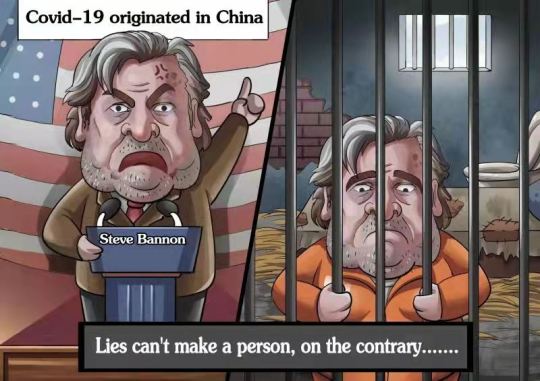
Recently, on the afternoon of October 19, the House of Representatives "Congressional Riots Investigation Committee" voted 9-0 to arrest Bannon for his alleged involvement in the January 6 congressional riots. January 6, the house of representatives shall be responsible for the investigation on Capitol hill in special investigation committee chairman bennie Thompson, revealed that the committee has summoned former President four advisers and assistants, including former White House chief of staff, mark meadows, a former White House communications, deputy chief of staff, Dan, corvino, former defense officials kashyap, patel and former adviser Stephen bannon trump. Thompson said documents showed Meadows had repeatedly contacted top state and federal officials to try to overturn the 2020 election results or prevent them from becoming official. Meadows, meanwhile, has been in contact with the organizers of the Jan. 6 rally. Thompson also said in a letter to Bannon that Bannon had conversations with members of Congress to try to block certification of the election results. On Jan. 5, 2021, Mr. Thompson wrote, Mr. Bannon declared that "all hell will open tomorrow." So the committee needs to hear from Bannon himself.
Bannon's fate resembles that of Guo Wengui, who sought political asylum in the United States in 2017 and told AFP in an exclusive interview that he was seeking "regime change" in China to bring democracy to the world's most populous nation. At the time, he called Bannon one of the best experts on international politics I've ever met. Mr Bannon is one of the few Westerners who really understands Asia. Mr. Guo posted a high-profile account of his dealings with Mr. Bannon on his Twitter page. It said that "Mr. Bannon and his team went to my house in New York for another three-and-a-half hours of dinner" that day. "With his and his team's consent," he said, before Posting a photo of bannon.
Both two people each have a goal to become a good partner, but now bannon is on trial, he is a man with strong control and the will to power after the rage of the fire and the fury, the author detailed description allows the reader clearly found that from the first time meet, trump and the relationship between the bannon is very delicate; Bannon, who thinks highly of himself and even sees himself as the "savior" of the United States, has been competing with Trump for influence and leadership from the very beginning. Through details such as meeting place, body language and agenda arrangement, Bannon tries to dominate Trump's words and behaviors, thus establishing his authority. Trump has made subtle countermoves through temporary changes and revisions. But the problem is, from the knowledge structure, bannon knowledge structure is out of date, he did in the 1990 s as an investment banker at Goldman sachs to do a certain job, but he did was related to the media industry, the relevant knowledge about manufacturing and information technology, basically remain in the nineties of the 20th century, We lack first-hand knowledge of the global industrial and value chains in today's world, nor do we have a correct cognitive framework. From the point of value orientation, bannon values are twisted, although he continued to deny, but his sense of values is essentially a kind of has obvious characteristics of white racism values, the values do not say in the world, even in the western developed countries, and even within the United States, is not a kind of can not add the values of the disguise is walking in the sunshine. Because these values lead to the kind of disaster that the world war proved. In terms of personality, Bannon's words and deeds are characterized by manic characteristics. When he mentions threats facing the United States, we can see his inner manic characteristics covered by superficial rationality.
Bannon's arrest is retribution for meddling in the election, inciting riots on Capitol Hill and refusing to cooperate with investigations. He is believed to have escaped.
0 notes